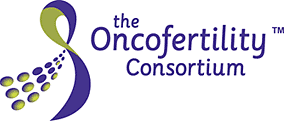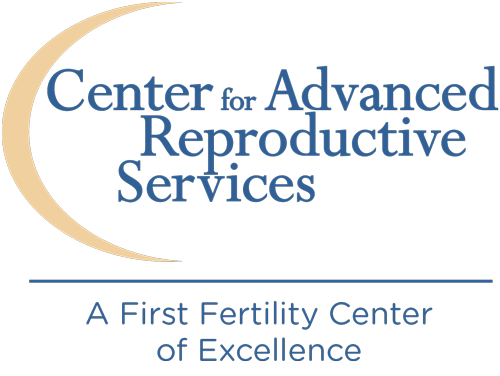- Why Choose Us
Success Stories
Our Facilities
Academics/Research
- Start Your Journey
- Family Building Programs
Integrated Health & Wellness
- News & Video
Video Library
News + Events
Contact Us
- Patient Portal
Online Payments
- For Physicians
The Center for Advanced Reproductive Services is a part of the First Fertility family of centers. Learn More About The Center.
Oncofertility Program
While the success of cancer treatments continues to rise, the side effects of those treatments are still being realized. For women, certain therapies can cause ovarian damage or failure, early menopause, genetic damage to growing eggs and other reproductive problems. For men, cancer treatments can cause damage to the testes and interfere with sperm production.
At The Center for Advanced Reproductive Services, we are exploring many new technologies to help people preserve their fertility options. What makes our program so special is that we have unique collaborations with experts in the fields of both fertility and cancer treatments that enable us to offer the best, most personalized treatment plans and have access to the latest technologies available today. To facilitate such work and research, the National Institute of Health (NIH) is funding the Oncofertility Research Consortium. As a select member of this Consortium, we are part of an exclusive nationwide group of researchers who are dedicated to the advancement of technologies that will provide improved fertility preserving options to cancer patients with threatened fertility. This special membership will allow us to participate in and have access to the latest clinical research, expand current knowledge of all issues related to cancer treatments and fertility, and be on the forefront of discovering new technologies and methods that successfully preserve fertility.
We are also an approved provider for Livestrong Fertility, the national advocacy group for cancer survivors seeking fertility preservation. As an approved provider, we have access to specialized education, support and financial assistance programs.
Fertility Preservation Options
We currently offer many different services to preserve fertility options for both men and women. Here is a brief overview of each:
For Women
Egg Freezing
This new technology has proven to be as effective as embryo freezing. It also takes 2-6 weeks to complete. During egg freezing, eggs are retrieved from the ovaries, frozen in a cryoprotective solution, and then thawed when couples wish to become pregnant. This is a good option for single women who do not have a male partner and do not want to use donor sperm.
Embryo Freezing
This technique has proven success rates and takes anywhere from 2-6 weeks to complete. A woman’s ovaries are first stimulated to mature multiple eggs, which are then removed and fertilized through In Vitro Fertilization (IVF) with sperm to create embryos. The embryos are then frozen for future use.
Ovarian Tissue Freezing
This technique is an experimental but promising option that is good for patients with little or no time for ovarian stimulation before cancer treatment. One of a woman’s ovaries is removed in a 1 hour outpatient procedure. The ovary is divided into strips, frozen and stored until cancer treatments are completed. Thawed tissue is then re-implanted and, when successful, the tissue resumes producing hormones and maturing eggs. This service is provided under the auspices of an institutionally approved study at the University of Connecticut Health Center.
Ovarian Suppression
Another experimental technique, this is the only option that can be performed during cancer treatment. Medications are used to suppress the ovaries and prevent them from producing hormones or maturing eggs until after cancer treatment.
Donor Eggs and Donor Embryos
These two techniques are performed after cancer treatments are completed. They use eggs or embryos that are donated from young, healthy donors to initiate a pregnancy. The Center can assist patients in attempting pregnancies with donor eggs or embryos. Donor eggs can be fertilized with a partner’s or a donor’s sperm to create embryos that are transferred back into the woman through In Vitro Fertilization “IVF.” In embryo donation, pregnancy may be achieved with the help of couples who have completed their families with the help of IVF, and they have additional but unneeded embryos they are willing to share.
For Men
Sperm Banking
This technique has proven success rates and uses sperm that is donated through sexual stimulation or during a minor outpatient procedure. Sperm is then analyzed, frozen and stored for future use.
Support
A significant part of our care at The Center focuses on counseling and guidance on making the best decisions for treatment. All of our services benefit from the guidance of specialized experts who focus on different aspects of care – such as financial counseling and assistance programs, psychological support, and Cancer Center support teams.
It is important to learn more about these procedures and eligibility before cancer treatments begin.
Helpful Oncofertility documents:
Oncofertility Options & Treatment Steps
For more information please call 860.321.7082.



